
This course has generated interest, so I've decided to share our readings each week to invite new suggestions/reflections, & hopefully demonstrate to our awesome students the good in academic twitter: incl @ZhianChen4 @MayaSzafraniec @JosephKilgallen @aniamarynia @hannah_frog 🐸.
https://twitter.com/DavidWLawson/status/1304942764774182912
Week 1 - 'The Woman that Never Evolved'. This week we covered the emergence & controversy of sociobiology; & introduced the relationship between Darwinism & Feminism(s) -- as a foundation to build on in future weeks. 
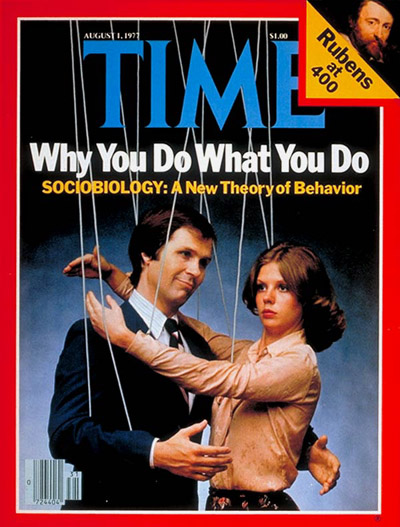
Key readings: Chapters 1-3 of the highly recommended💫 Sense & Nonsense by Laland & @GillianRBrown1 (2011). Provides a great introduction to evolutionary approaches to human behavior - I hope a 3rd edition of this book comes along soon!! 
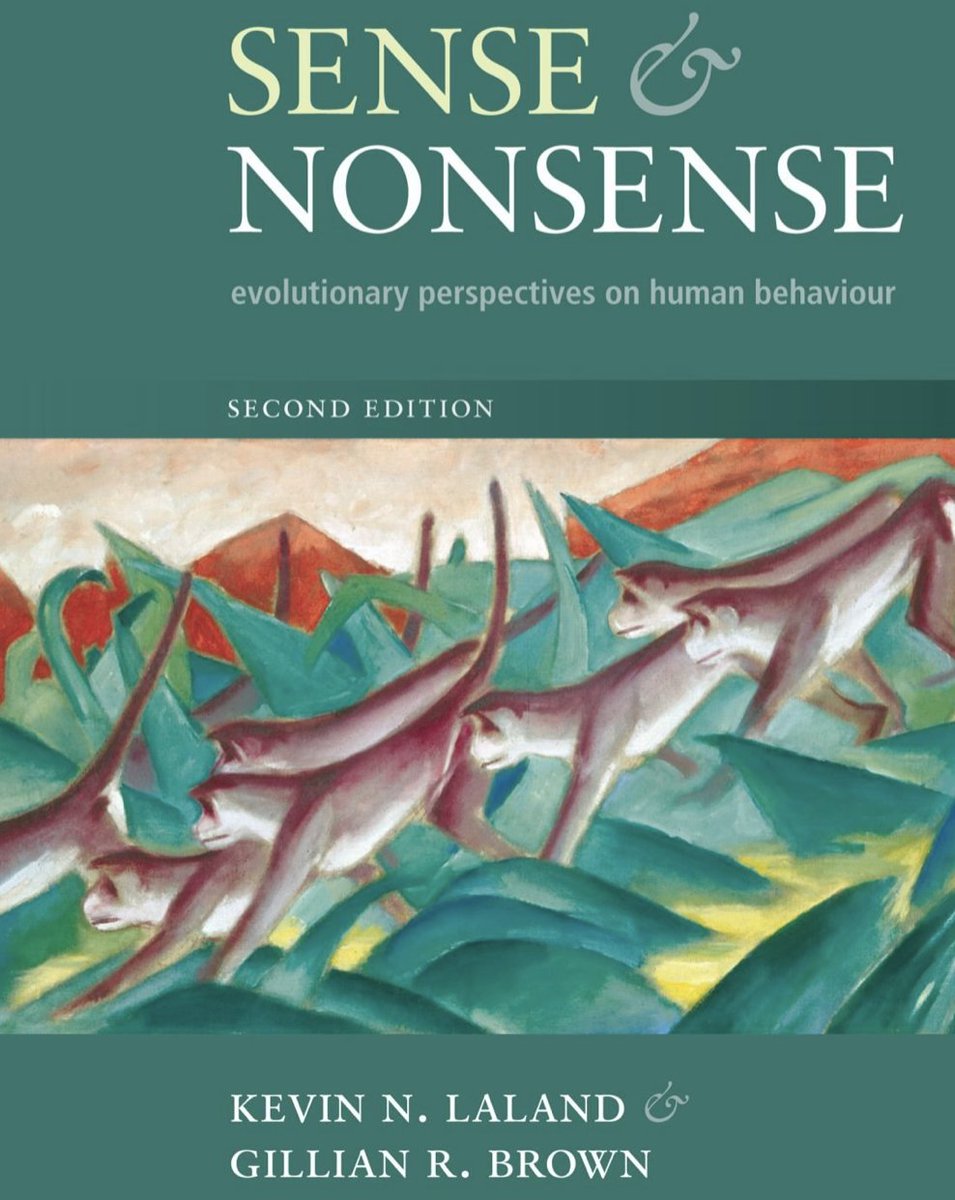
Followed up by @professorperl's 'Darwinian Feminisms' (2017), which provides a historical overview of feminist interactions with evolutionary thinking from the publication of On the Origin of Species to today... english.upenn.edu/sites/www.engl… 
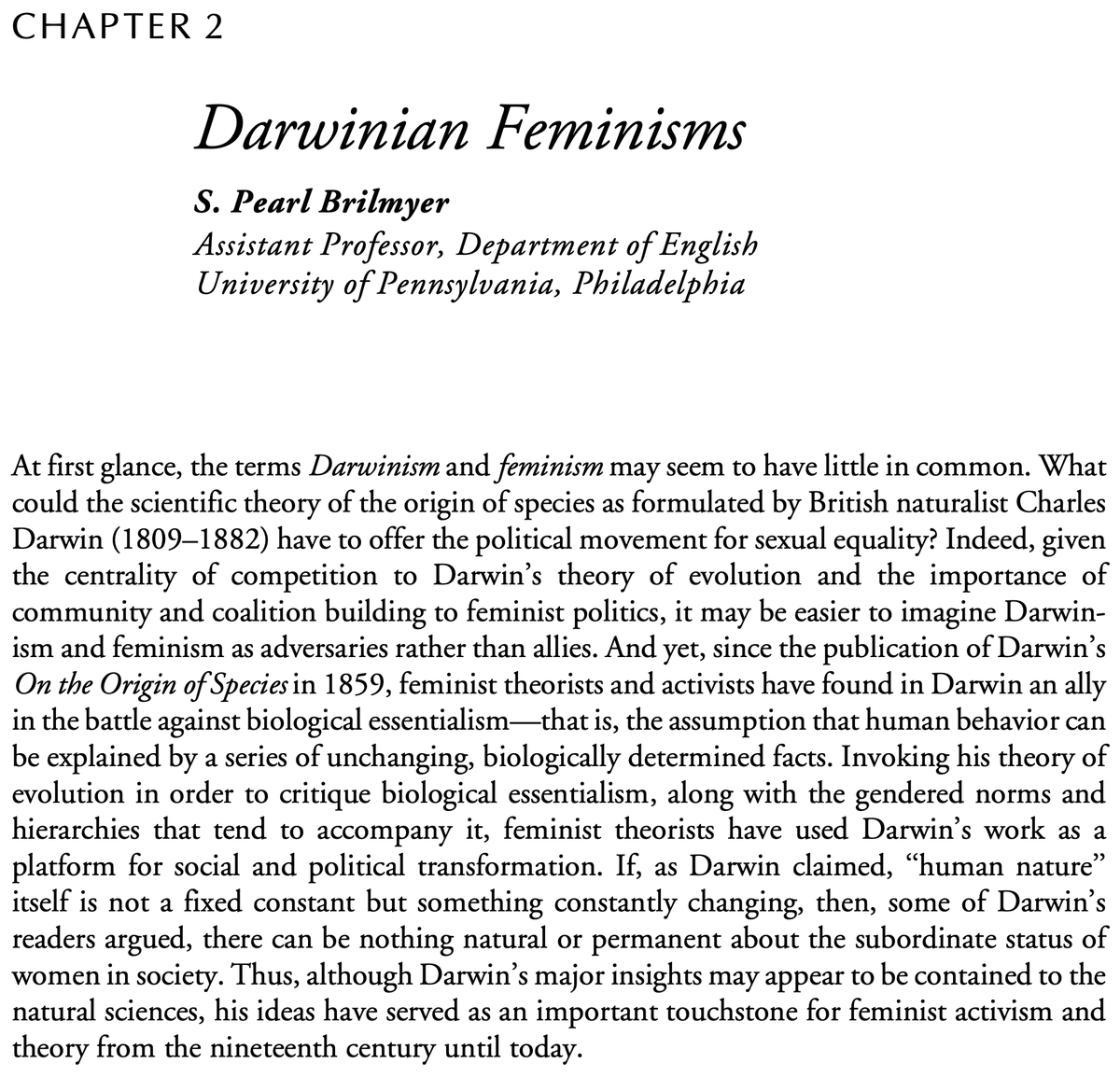
...special mention to Helen Gardener (1853–1925), who famously donated her brain to science in effort to prove her lifelong conviction that women's brains are not inferior to men's. en.m.wikipedia.org/wiki/Helen_H._… 

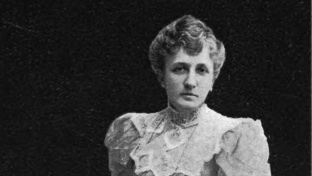

Finally, we read the preface to the 2nd edition of Sarah Hrdy's 'The Woman that Never Evolved' (1999) - 'On Raising Darwin's Consciousness'. A great personal essay reflecting on the importance & legacy of this classic. 


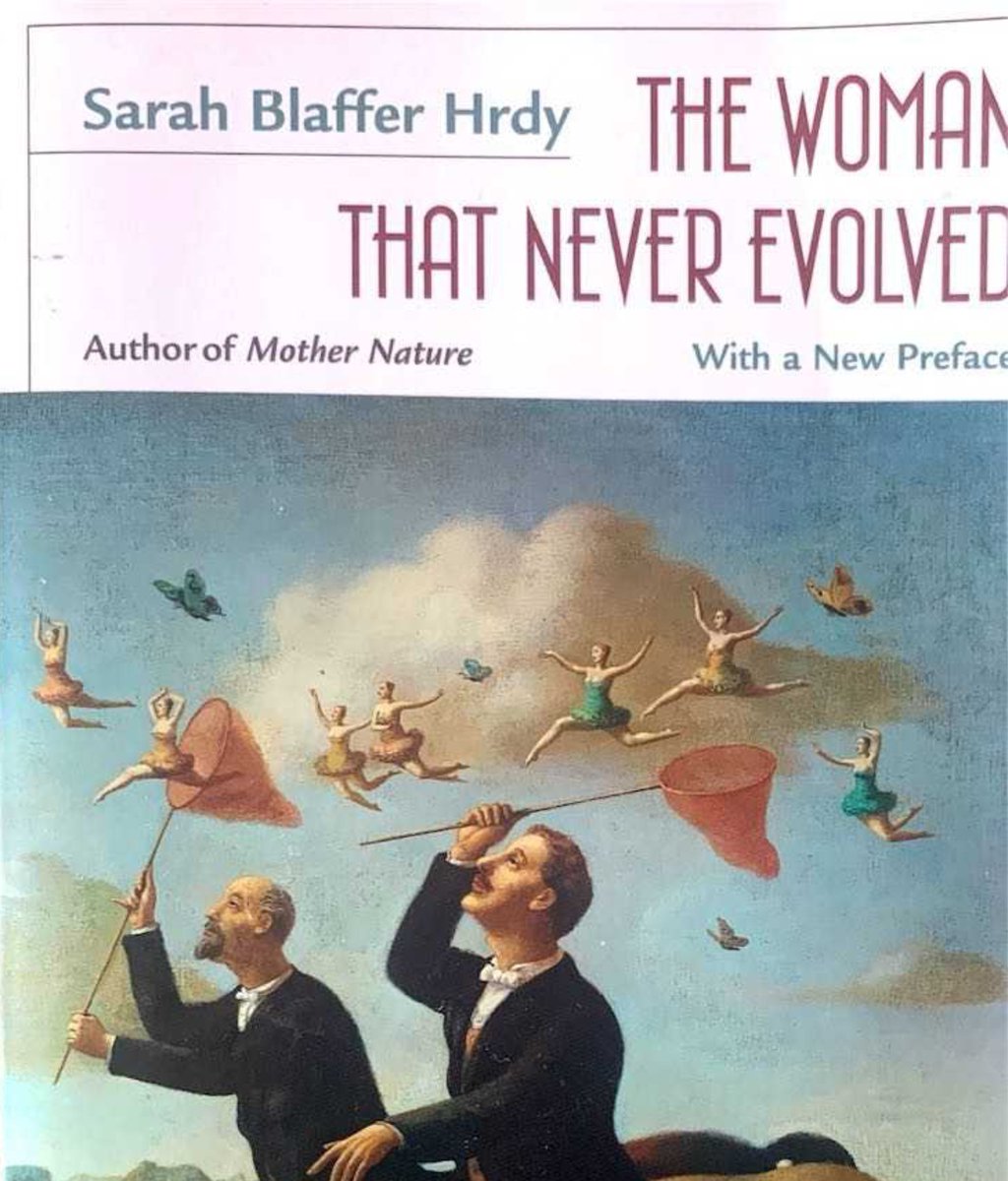
Lots more to come, & lots of optional readings on the side (including some pictured here) - too much to tweet. But we welcome any recommendations now & each week going forward. I hope this thread might also connect folks with similar research interests...🤞🤓 



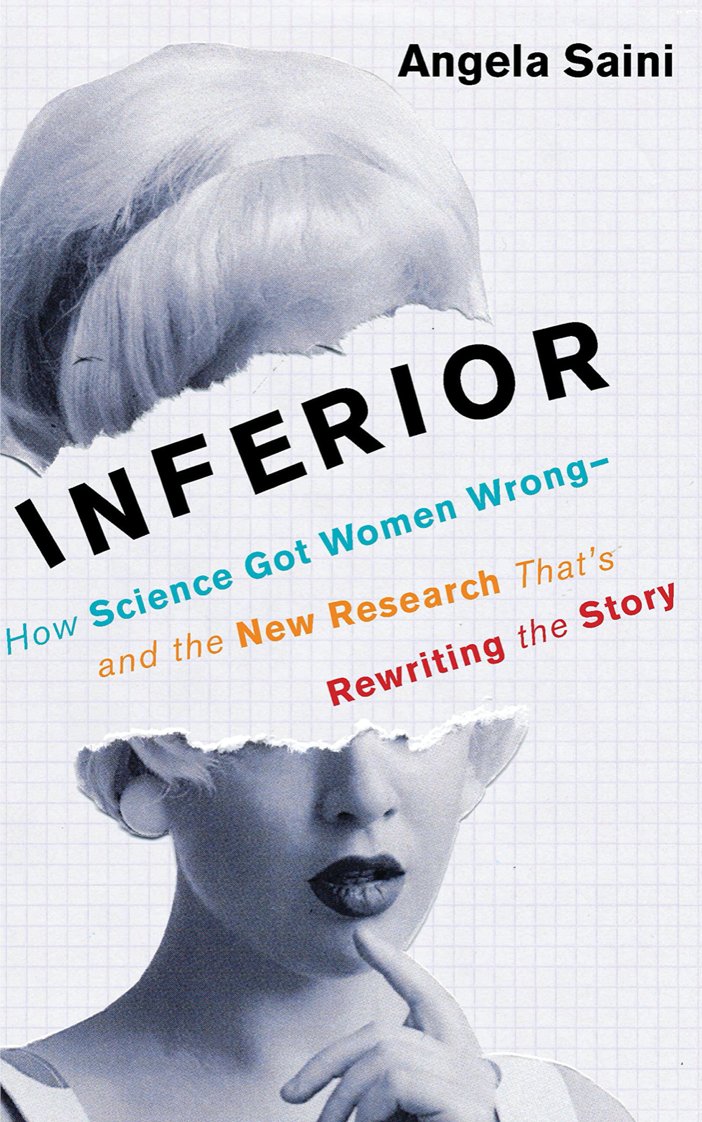
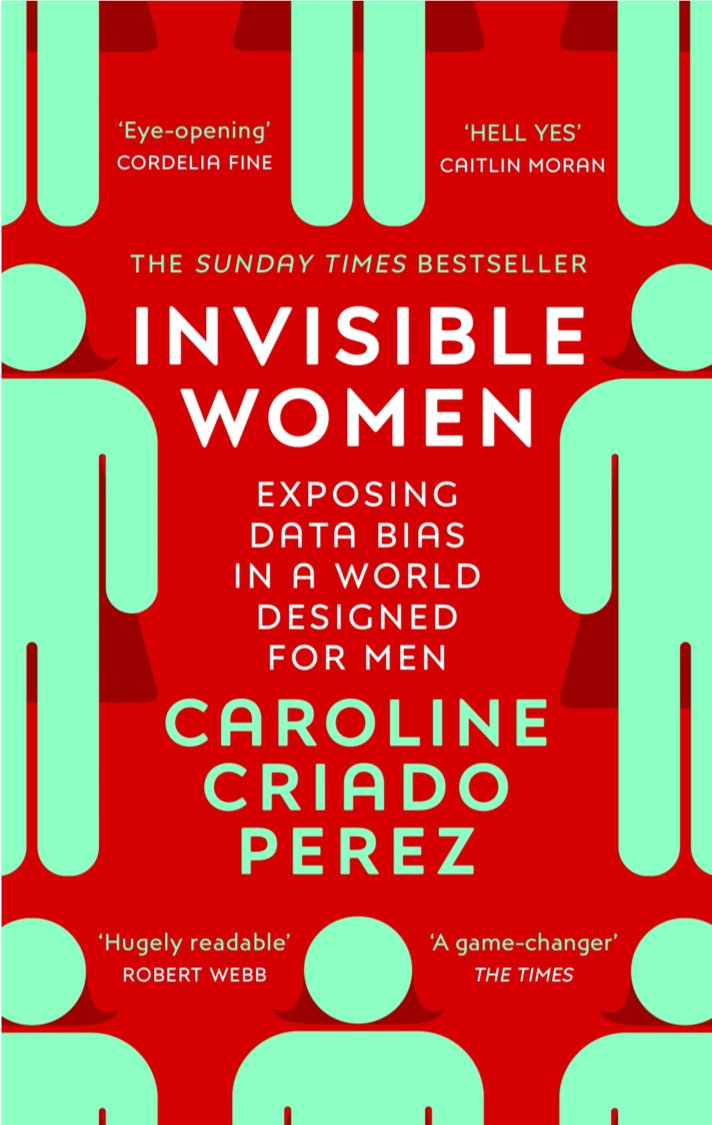
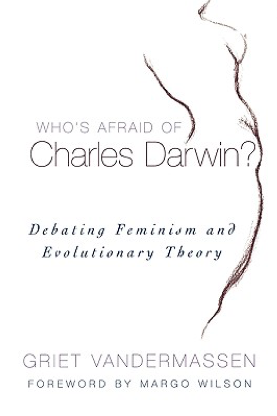
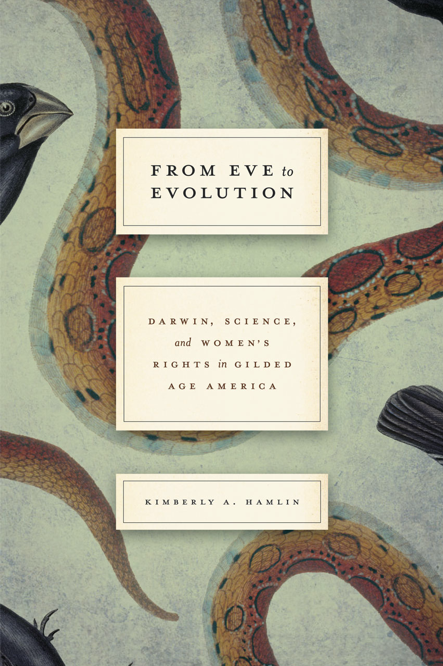
Week 2 - 'If we're all Darwinians whats the fuss about?'. This week we explored the key differences between Human Behavioral Ecology (HBE) & Evolutionary Psychology (EP), & their differing relationships with feminist scholarship.
Key readings: Laland & @GillianRBrown1's Sense & Nonsense Chapters 4-5 on HBE & EP. A balanced characterization of each field - warts & all! Interesting to discuss here at UCSB given the centrality of Santa Barbara to EP... 



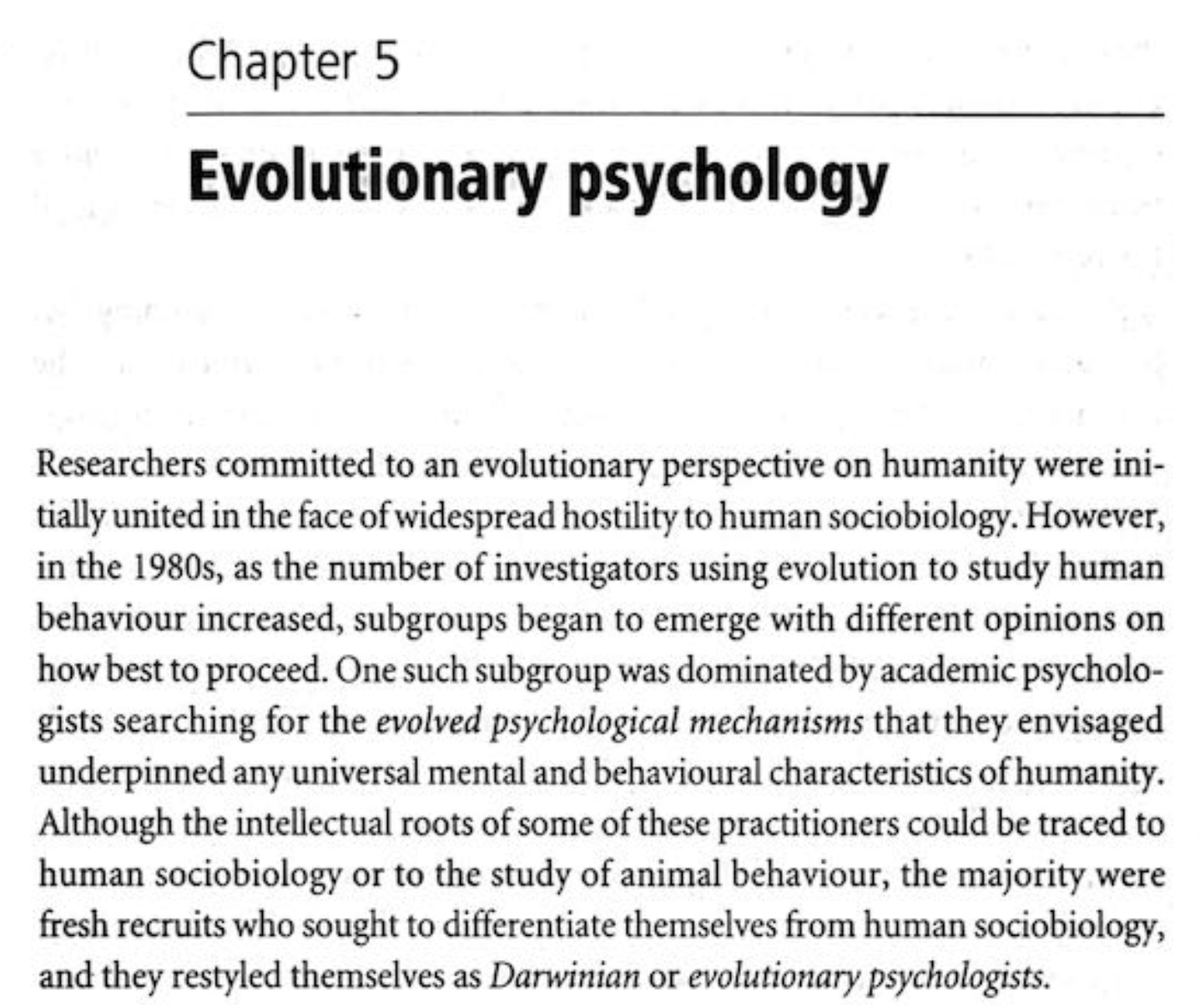
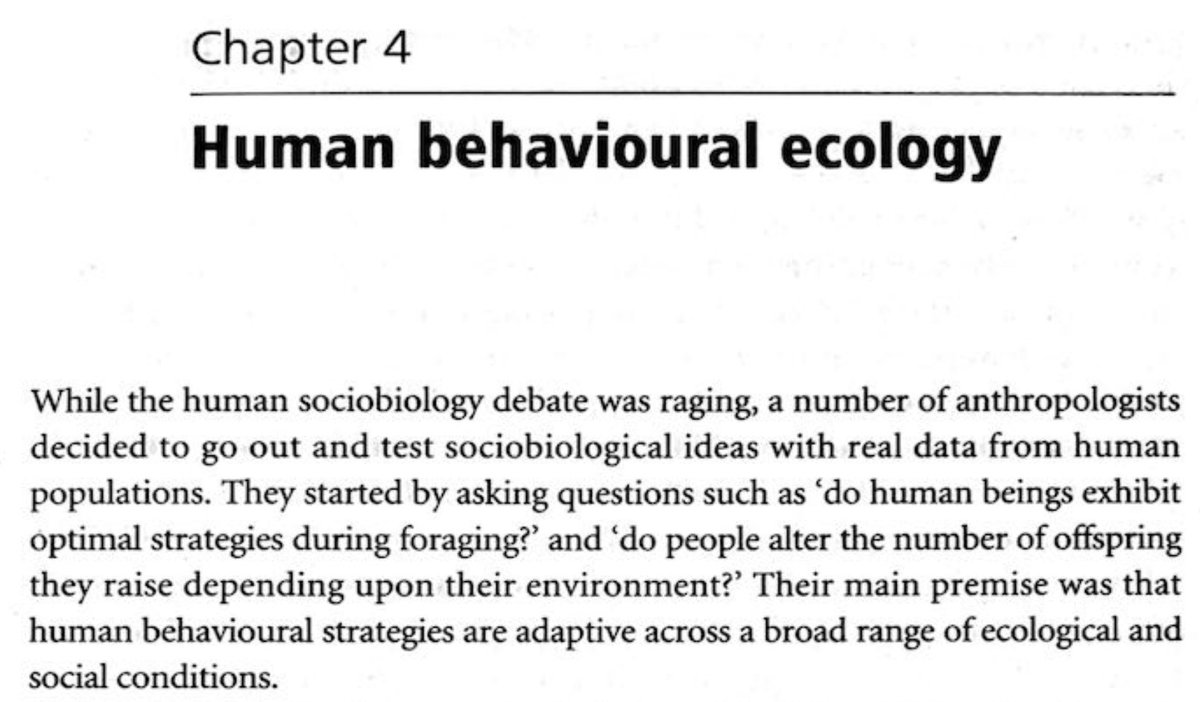


Followed by Liesen's (2007) provocative & under cited review 'Women, Behavior, & Evolution', which argues that EP has historically(🙃?) exhibited a 'chill toward feminism', while in HBE feminist evolutionists 'have found old biases easy to correct & new hypotheses easy to test'.. 
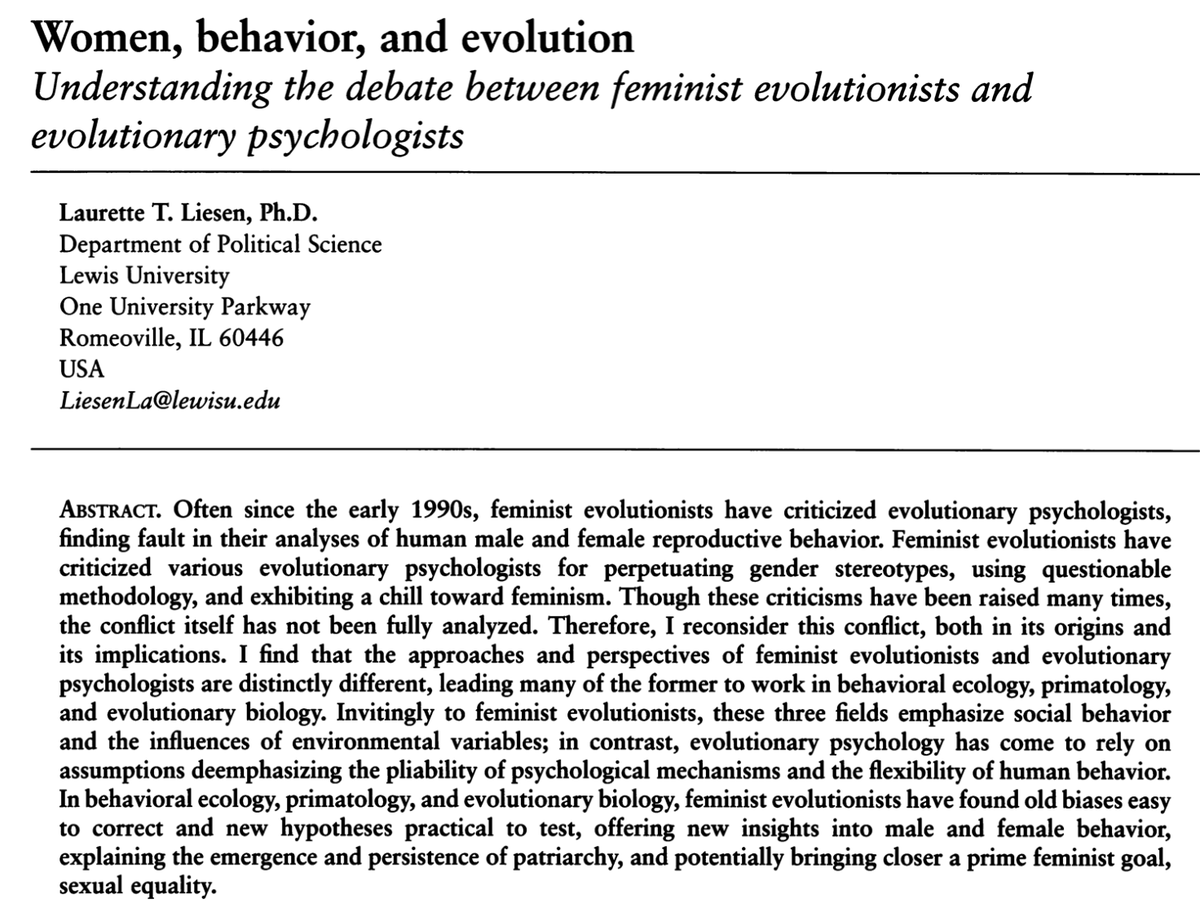
& for balance, @ProfDavidBuss & @PsychoSchmitt's 2011 'Evolutionary Psychology & Feminism' which attempts a more conciliatory relationship with feminism (although sadly glosses over differences between EP & HBE traditions)... link.springer.com/article/10.100…
As optional reading, we also considered Campbell's (2012) 'The Study of Sex Differences: Feminism & Biology'. Pictured here - is Campbell's book (too long for class!) - 'A mind of her own: the evolutionary psychology of women'. psycnet.apa.org/record/2012-14… 
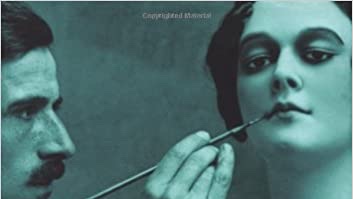
Finally, Burch's (2020) 'More than just a pretty face: the overlooked contributions of women in EP textbooks' which argues that women's bodies, rather than behavior, have received a disproportionate amount of attention in texts defining & introducing the field... 

As always, more to say here than a twitter 🧵can do. But welcome any other suggested readings... next week we turn to the Bateman-Trivers paradigm...💔🪰 
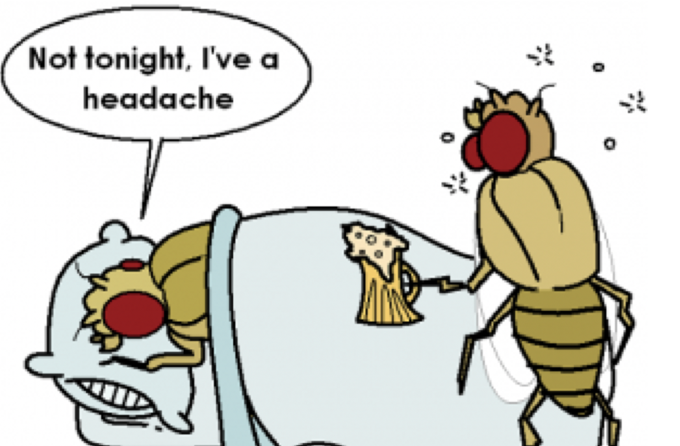
Week 3 - The Rise & Fall(?) of a Paradigm. This week we review the incredible legacy of Bateman's 1948 study of Drosophila melanogaster purported to ultimately explain ‘an undiscriminating [sexual] eagerness in the males & a discriminating passivity in the females’ across nature.
We begin with @cyborgphilosoph's highly recommended💫& provocative 2020 overview of the history, critiques & lasting impact of Bateman's 1948 article. Can not recommend this enough to anyone interested in sexual selection / history of science! Go read it! sciencedirect.com/science/articl…
Along with covering the recent failed replication of Bateman, leading Gowaty et al (2013) to memorably conclude ‘the modern bedrock of sexual selection may have been quicksand’, @cyborgphilosoph highlights the ways in which Bateman has been misrepresented/miscited over the years. 



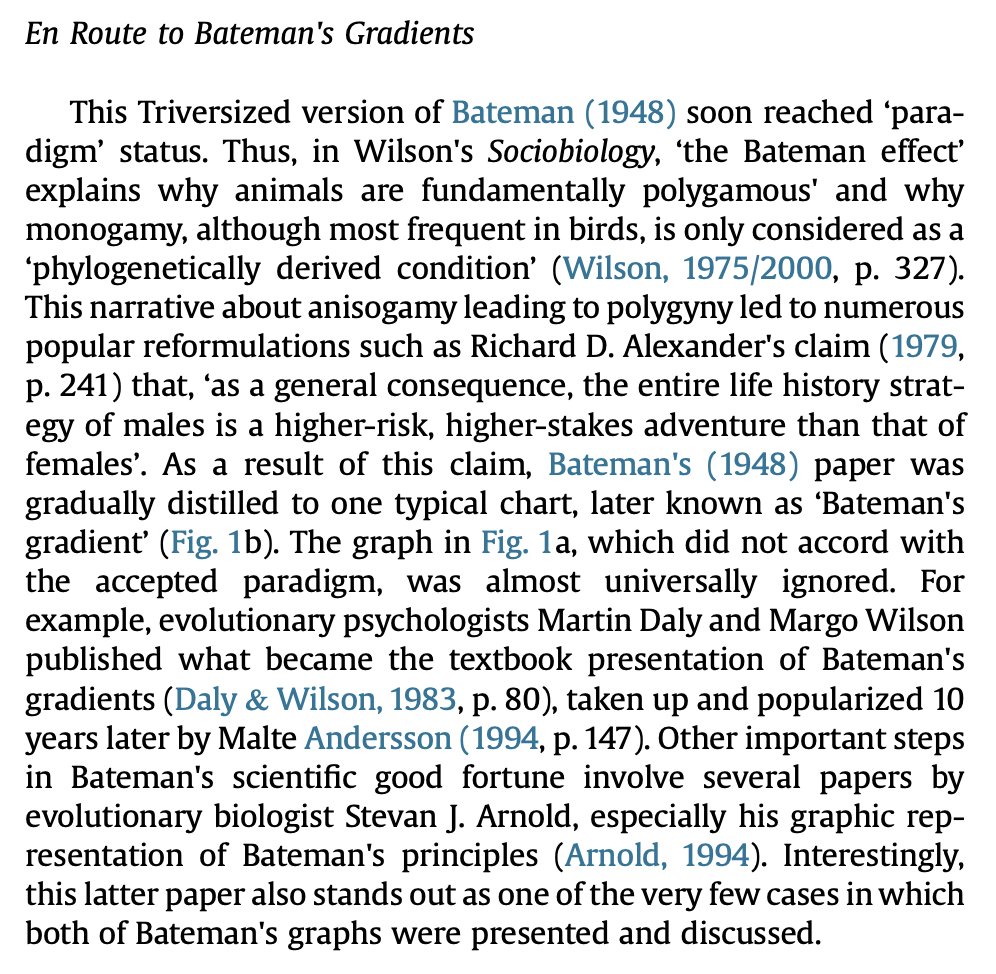
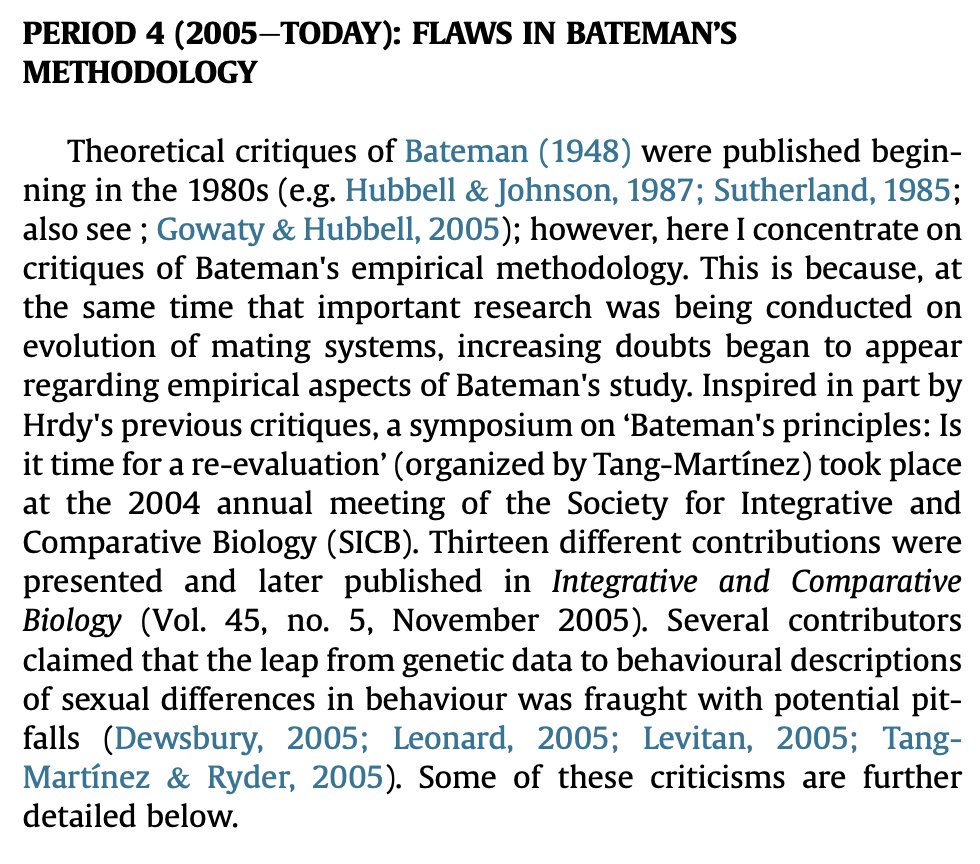

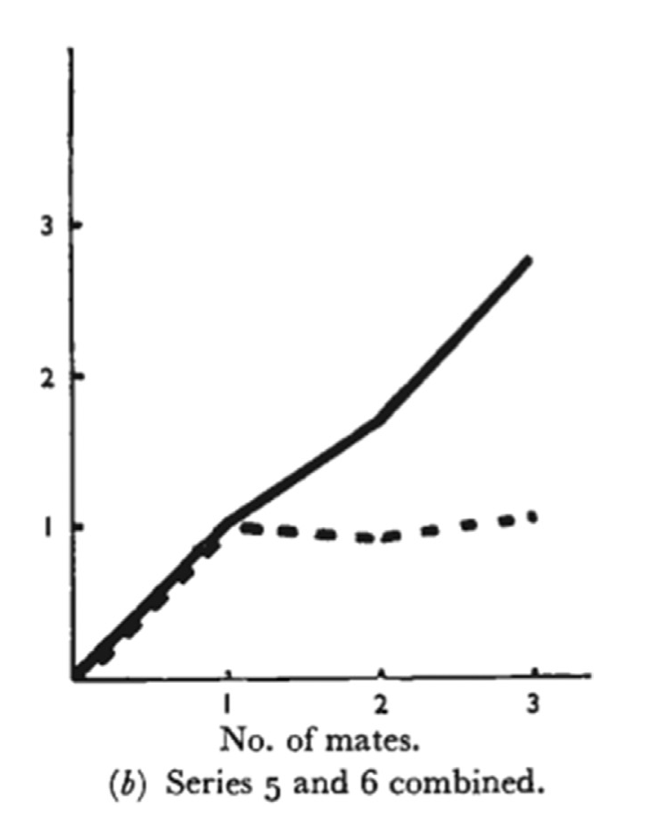
For a more optimistic take, we also read @TimJanicke's 2016 paper 'Darwinian sex roles confirmed across the animal kingdom'... 'We demonstrate that, across the animal kingdom, sexual selection... is indeed stronger in males than in females'... advances.sciencemag.org/content/2/2/e1… 

Turning to humans - we then read @GillianRBrown1's 2009 review challenging the general applicability of Bateman's principles... Along with highlighting poor data, the equivalence of male & female reproductive success among monogamous societies is striking. sciencedirect.com/science/articl… 

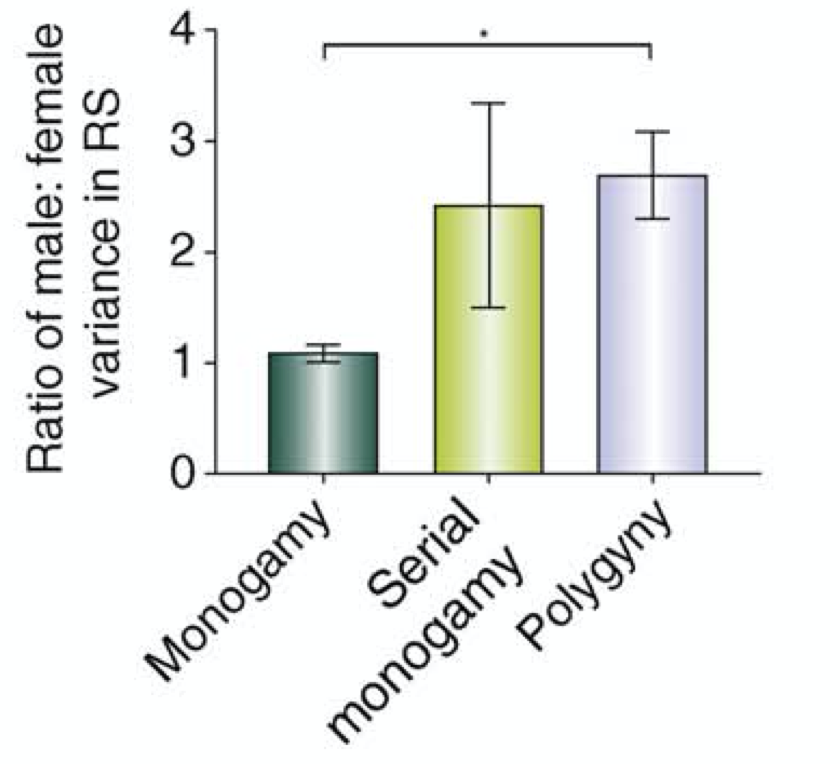
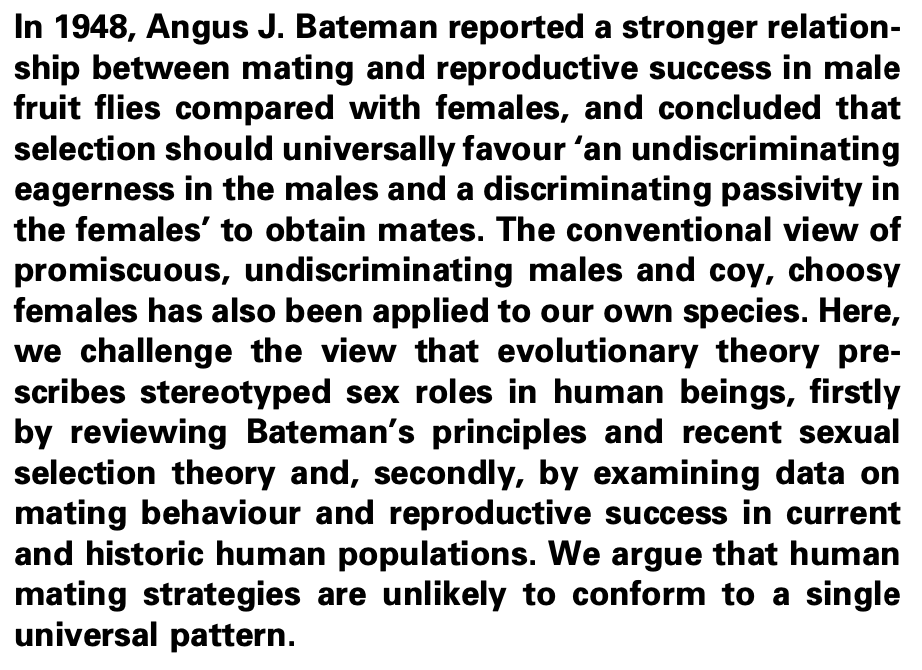
Next up @bascelza's review of the benefits of multiple mating for women - "the last 30yrs of research have served to question much of the traditional wisdom about sex differences.. illuminating the many ways that women can & do engage in multiple mating" onlinelibrary.wiley.com/doi/abs/10.100…
Finally we read Borgerhoff Mulder's (❤️) 2020 chapter in @AnthroPsycho & @RebeccaSear forthcoming edited volume on Evolutionary Demography. Probably the most up to date assessment of the applicability of Bateman's principles to humans..lots to unpack here! osf.io/64js5/
As always, Monique takes no prisoners making absolutely clear that, despite decades of research, variability in male & female reproductive/mating success remains poorly understood & current methods inadequate- see also her recent work with @mindismoving... royalsocietypublishing.org/doi/full/10.10…
As a last reflection, we noted that debates about the applicability of the Bateman's paradigm to human sex roles seem to have filtered into evolutionary anthropology more so than evolutionary psychology... indicative of wider emphasis on variability vs. universals??🤷 

Week 4 - 'Becoming Men & Women'. This week we slowed down the readings to focus on a basic theoretical orientation for how #culture is best integrated into an evolutionary perspective on human behavior... & full disclosure - we bit of more than we could chew for single class!
Key Readings: Chapters 6 & 7 of Laland & @GillianRBrown1 Sense & Nonsense (2011) - on Cultural Evolution, & Gene-Culture Co-Evolution. Great accessible overview of key concepts, case studies & critical evaluation... this table is also neat! 
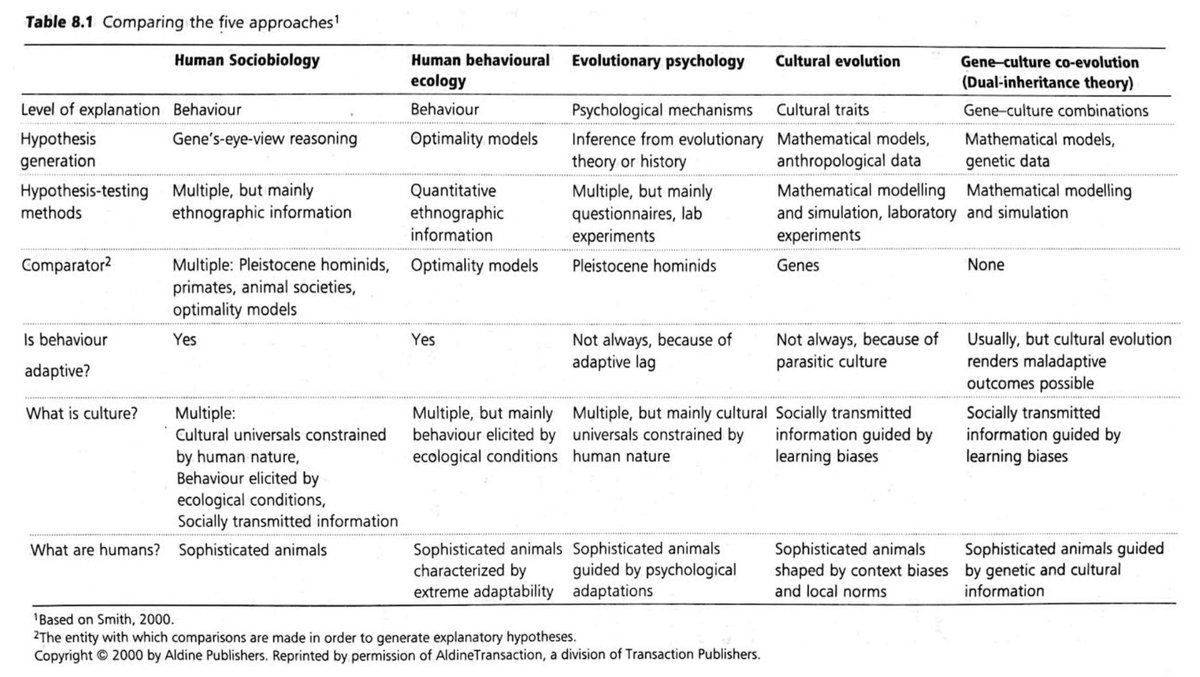
@amesoudi's 2011 book (pictured) is also recommended! Cultural Evolution is not well represented here at UCSB, & I keep toying with the idea of starting a dedicated undergraduate course. Would likely use this, along with usual suspects (Boyd & Richerson, Henrich), if I do... 
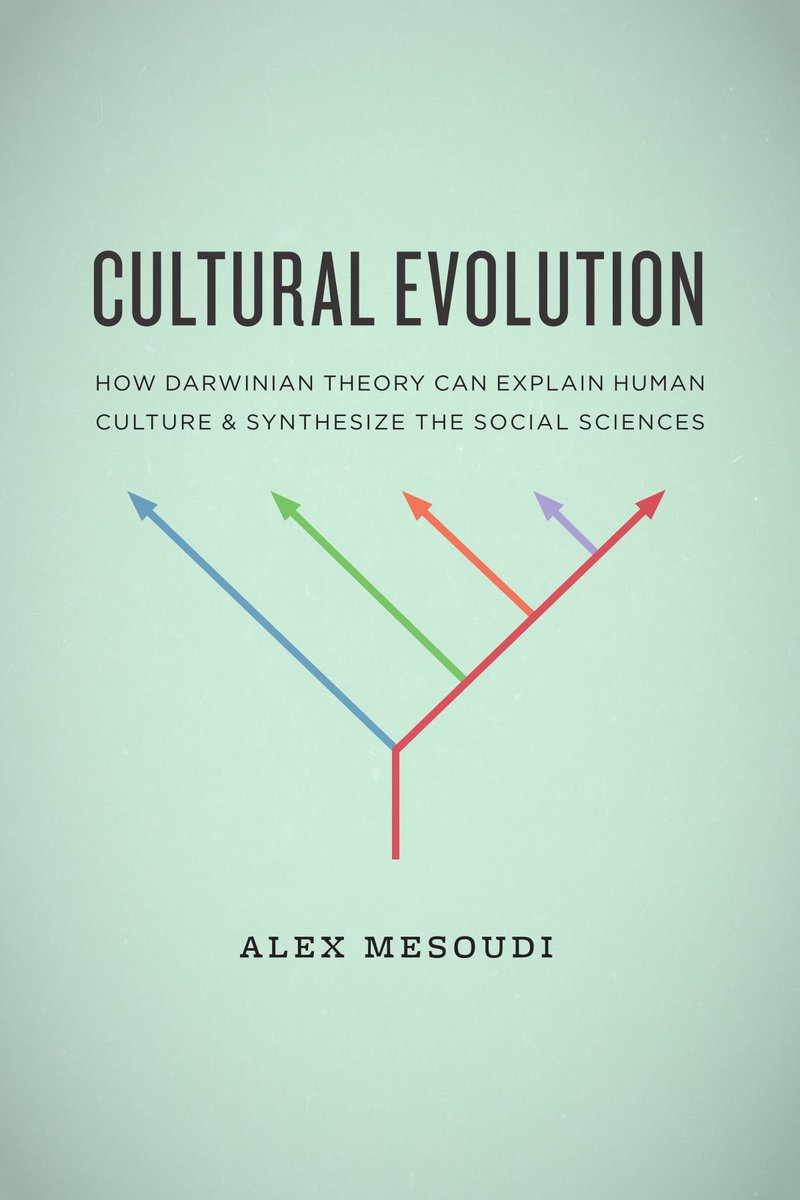
We then briefly considered how gender norms & their social construction can be best tackled by modeling social learning. No set readings, just a brainstorm (as we will return to this later)- but students took inspiration from some of the suggestions here..
https://twitter.com/DavidWLawson/status/1305938298402009088?s=20
Week 5: 'The Battle of the Sexes'. Leaving aside sex differences & general theoretical orientation on evolution & behavior, this week we got stuck into sexual conflict - beginning with classic by Barbara Smuts (1992) - Male Aggression Against Women: An Evolutionary Perspective 
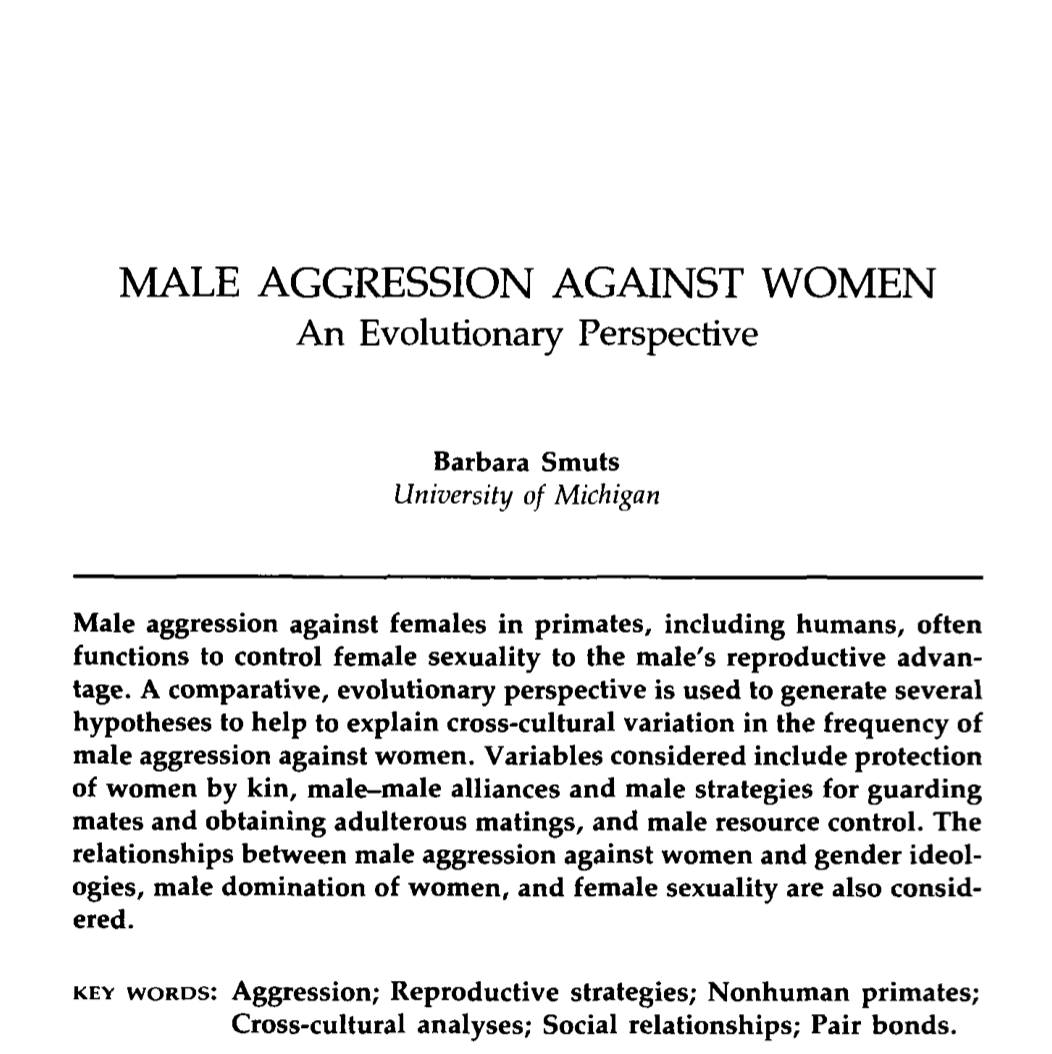
Perhaps most striking to me is how deftly Smuts moves from comparative observations about non-human primates, to issues of socioecological variation across human societies, to big questions of gender ideology - demonstrating the potential of an evolutionary approach.
Realizing that potential however is a different matter -- & much of Smuts' writing is speculative. Would♥️to see a systematic review of the evidence presented for & against the hypotheses proposed in this pioneering work 30 years later. Maybe a journal special issue? Any takers?
In the meantime, Borgerhoff Mulder & Rauch (2009) get close to this goal & highlight the explosion of evolutionary research on sexual conflict theory since Smuts. Not just on ♂️coercion, but ♀️counterstrategies, & sexual conflict over other traits such as growth or family size... 


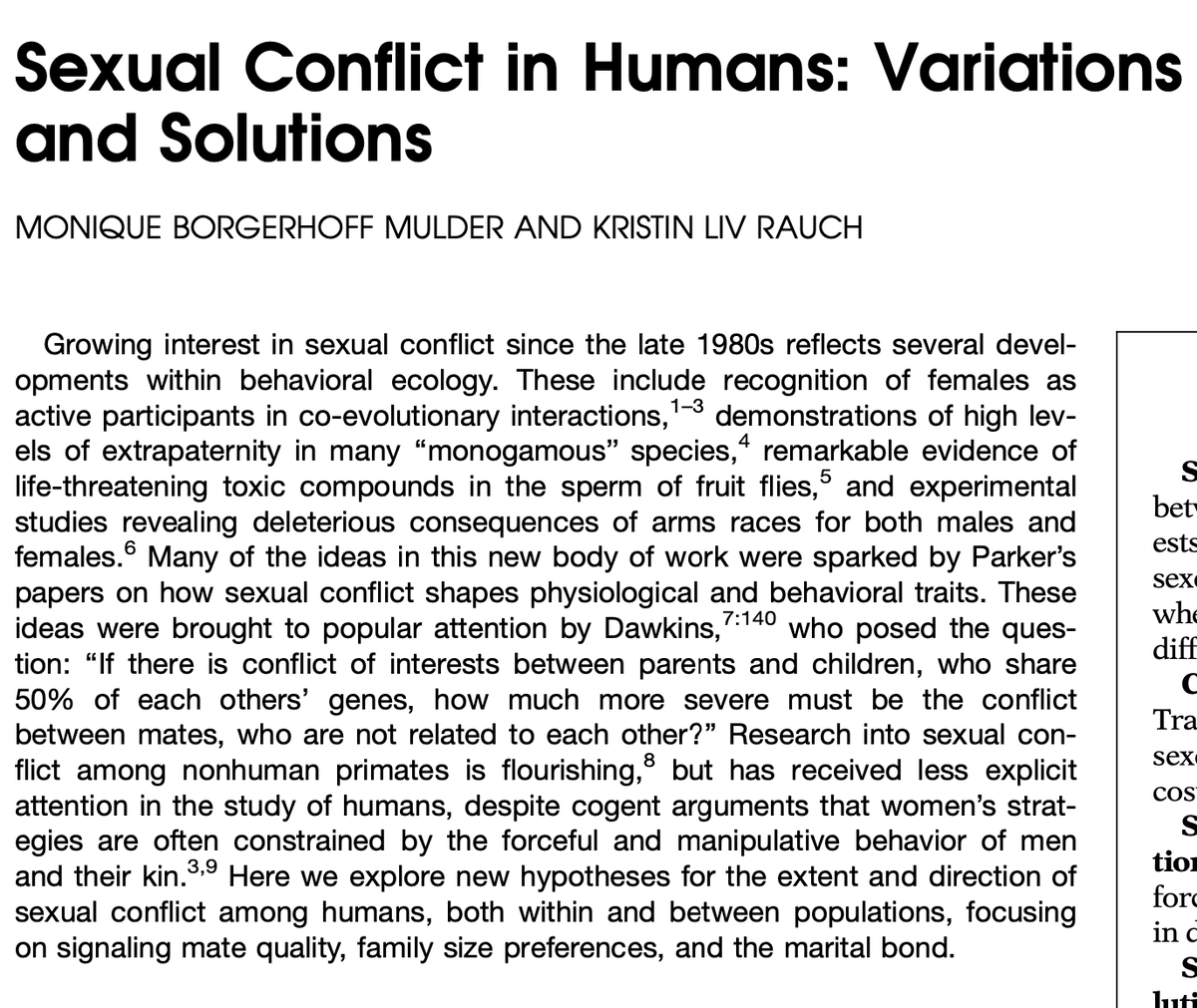
We also read Palombit's expansive chapter on sexual conflict in non-human primates... sciencedirect.com/science/articl…
Particularly useful here are the summary tables reviewing different forms of sexual conflict... with individual case studies fleshed out in the main text for different 🐒s. And some great quotes, like this one from Tregenza, Wedell & Chapman (2006)... 



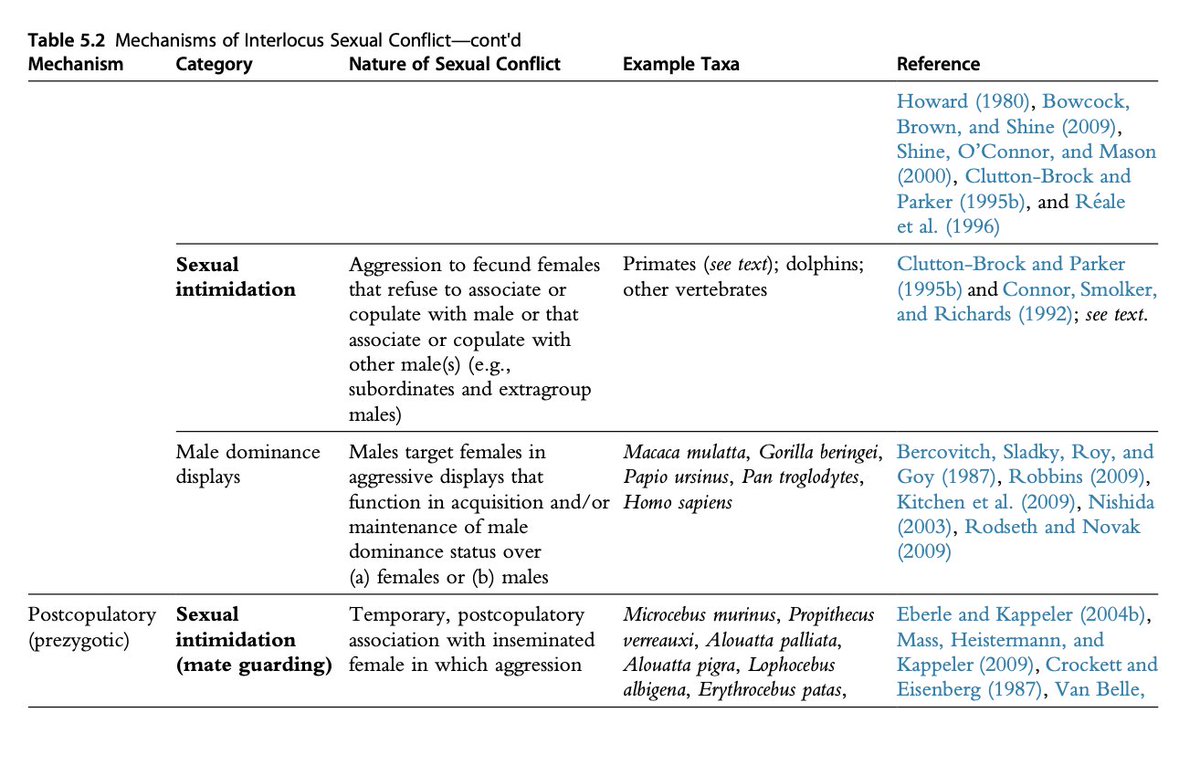
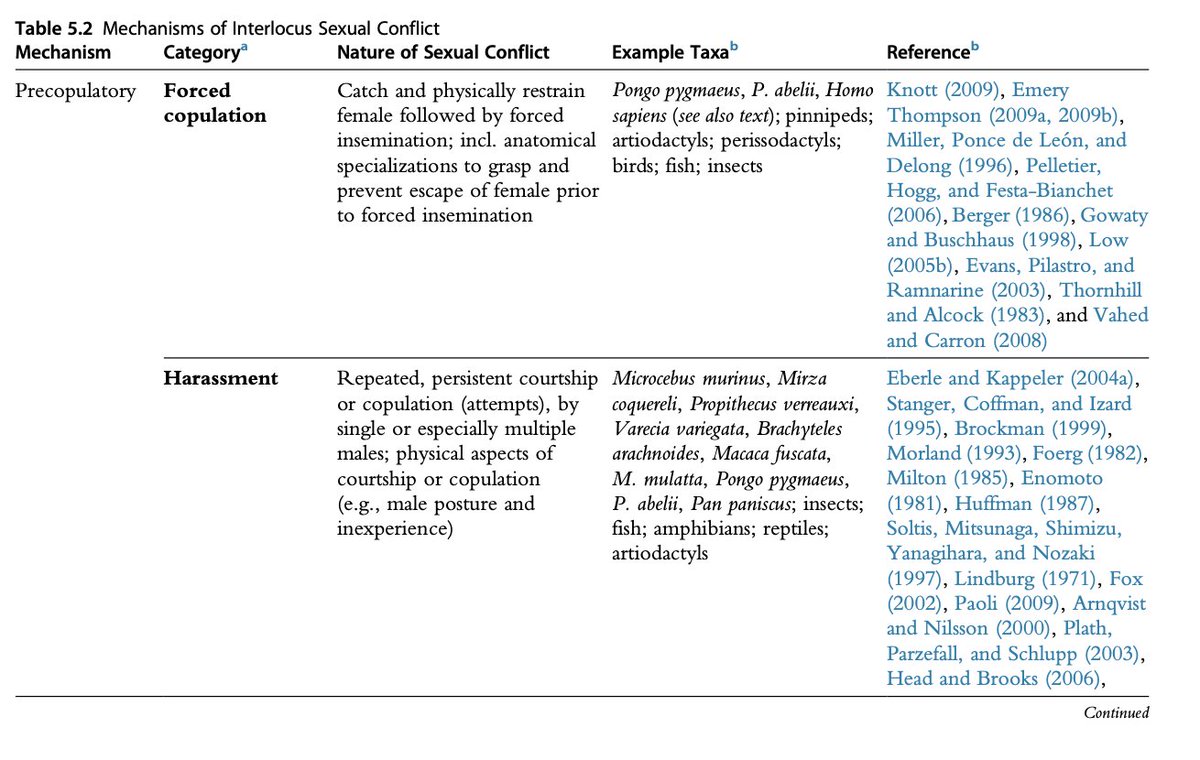
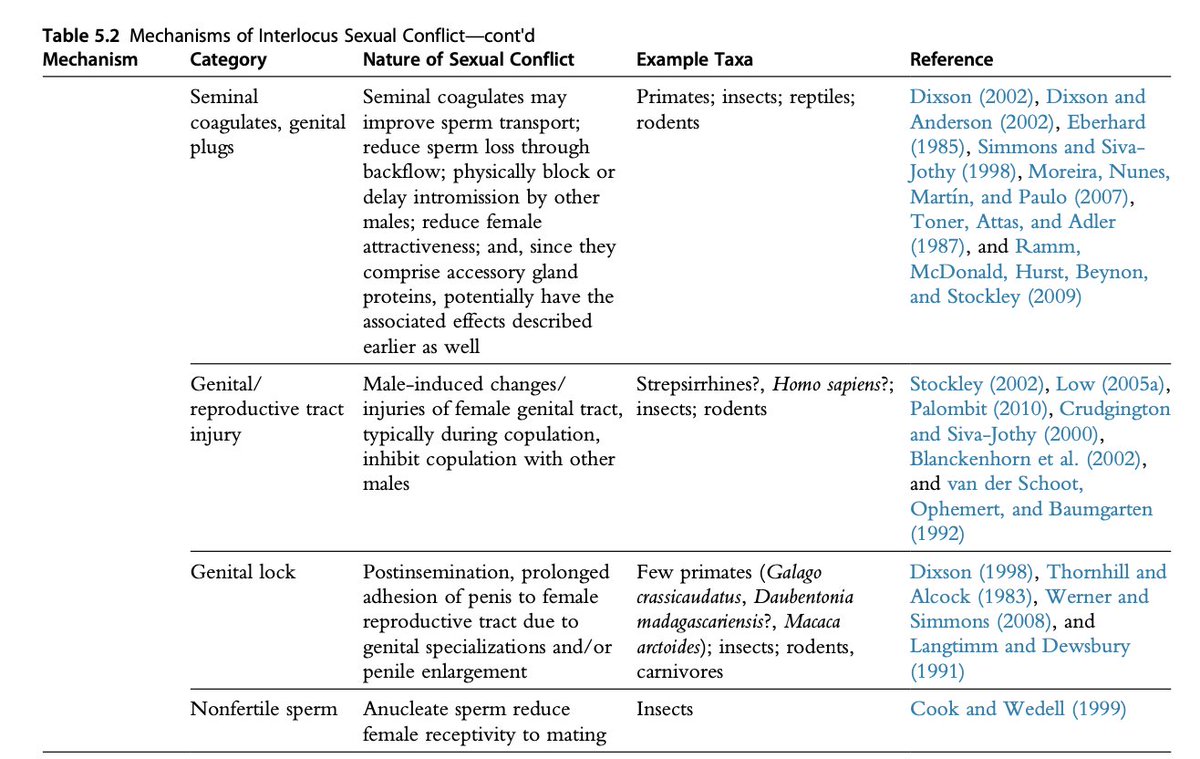
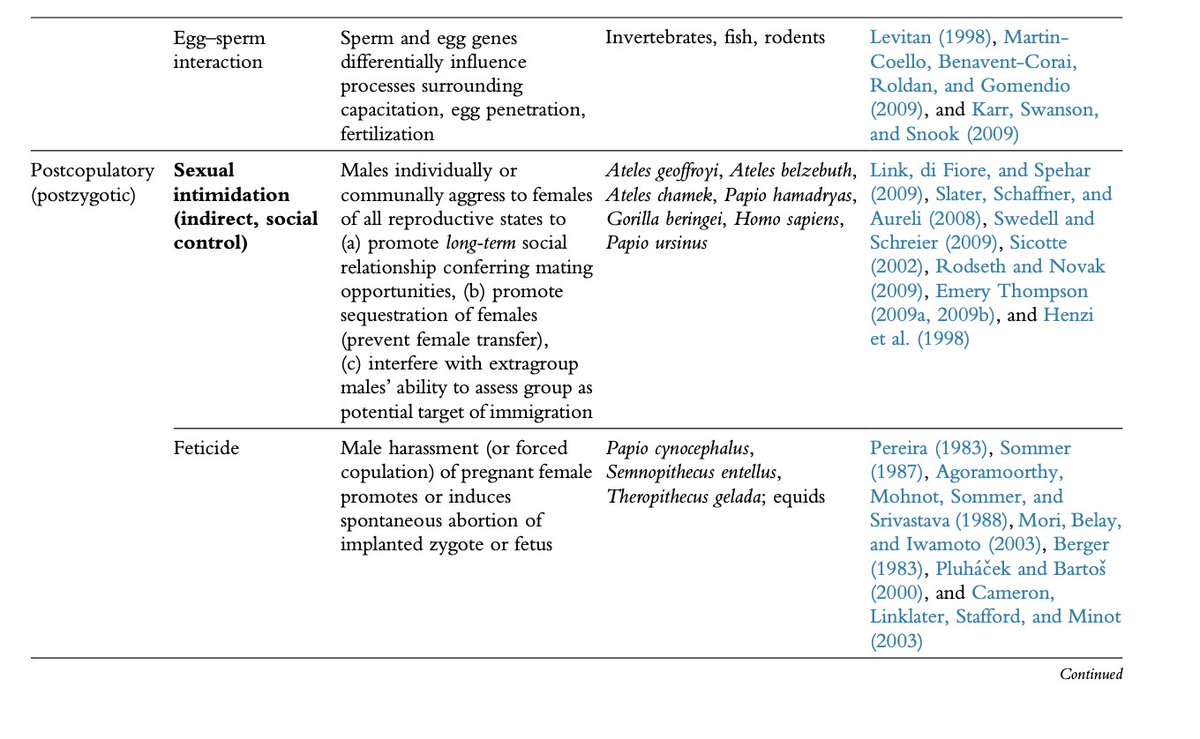
"the evolutionary dance that has been used as a metaphor to describe the process of sexually antagonistic coadaptation may be better regarded not simply as a couple moving across a dance floor, but as a couple who leave a trail of destruction that they must negotiate as they move
Finally, we read Vandermassen's "Evolution & Rape: A Feminist Darwinian Perspective" 2011 which covers reactions to the controversial book-"A Natural History of Rape 2000" by Thornhill & Palmer, which "set back by years the relationship between feminism & evolutionary psychology" 


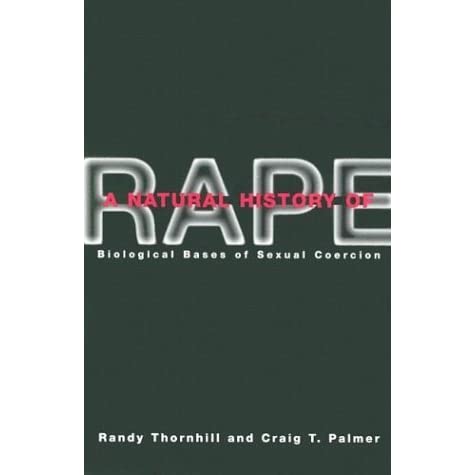
This is fair & balanced review! Highlighting, that while some feminist reactions were off the mark, ANHR truly fails in its arrogant opposition of (non-evol) social science knowledge, & in pitting staw (wo)men models of rape as ALL about power vs ALL about sex against each other. 



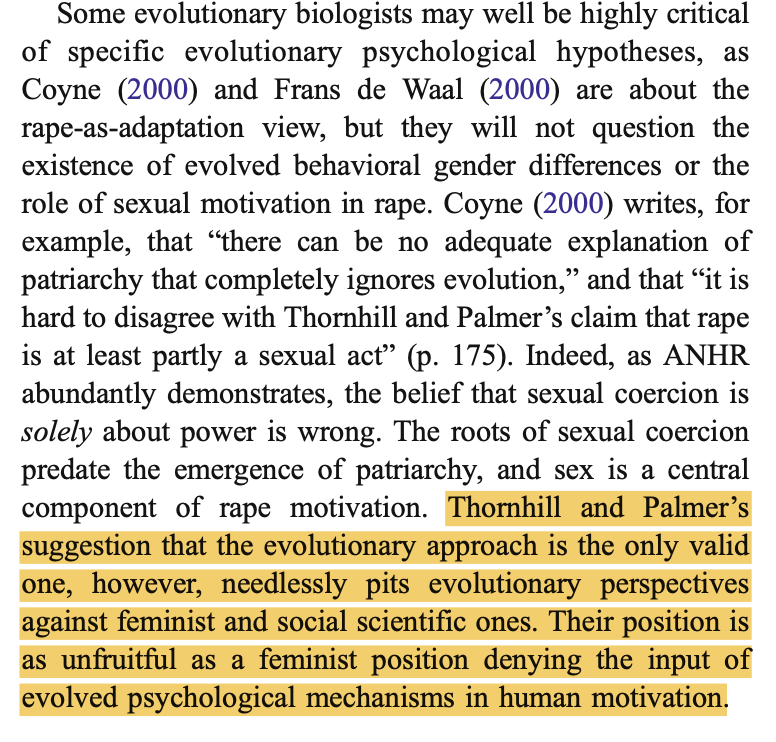
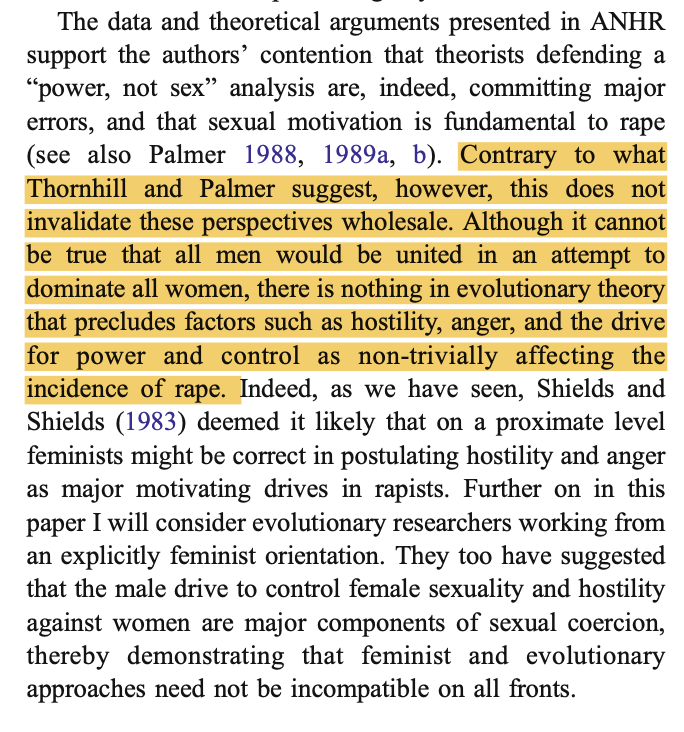

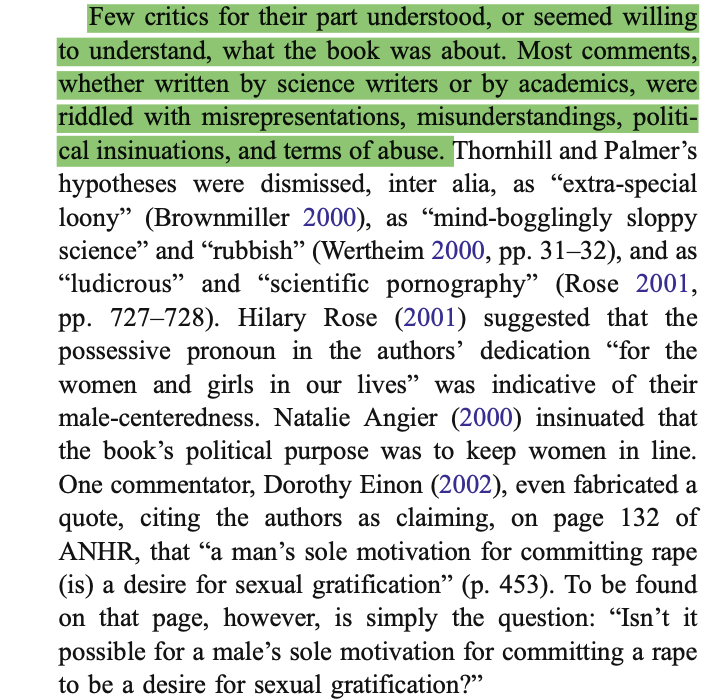
Bringing us full⭕️, Vandermassen redirects the reader back to Smuts, & her explicit focus on sexual conflict, power inequalities & the formation of gender ideologies that restrict female power as a broader framework to address rape. I leave the final word then to Smuts... 

Week 6: The Origins of Patriarchy. Building on the early writings of Hrdy, Smuts & others (classic 95/96 essays pictured here) we interrogate the (hypothetically) critical role of subsistence mode in shaping gender relations - turning to research in both anthropology & economics. 

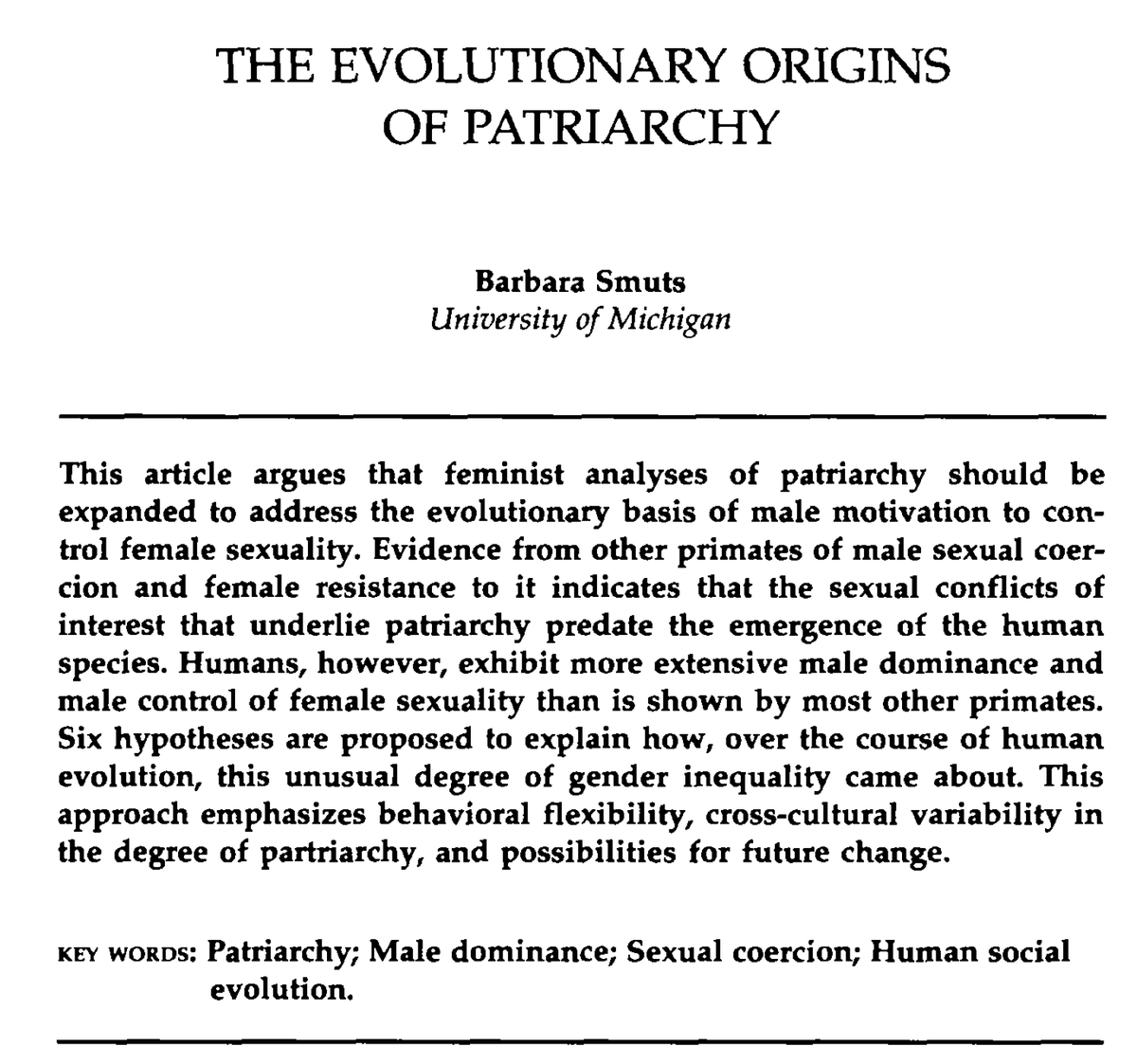

Our 1st 🧩is characterizing foragers as a model for our evolutionary history. As this 👇recent work attests (Hass et al), forager gender roles/relations are perennial hot topics in anth, not least because of patchy data on both ancestral & extant foragers.
theconversation.com/did-prehistori…
theconversation.com/did-prehistori…
Key readings: We first read @DybleMark et al (2015), which argues that an unusual tendency towards bilocal residence in foragers, compared to other primates, coevolved with a transition to pairbonding & increased sexual egalitarianism. science.sciencemag.org/content/348/62…
We paired this with 1⃣ a classic by Patricia Draper (1975), arguing against (then prevalent) stereotypes of ♂️dominance in foragers "the point to be developed at some length, is that in the hunter gathering context, women have a great deal of autonomy & influence"... 
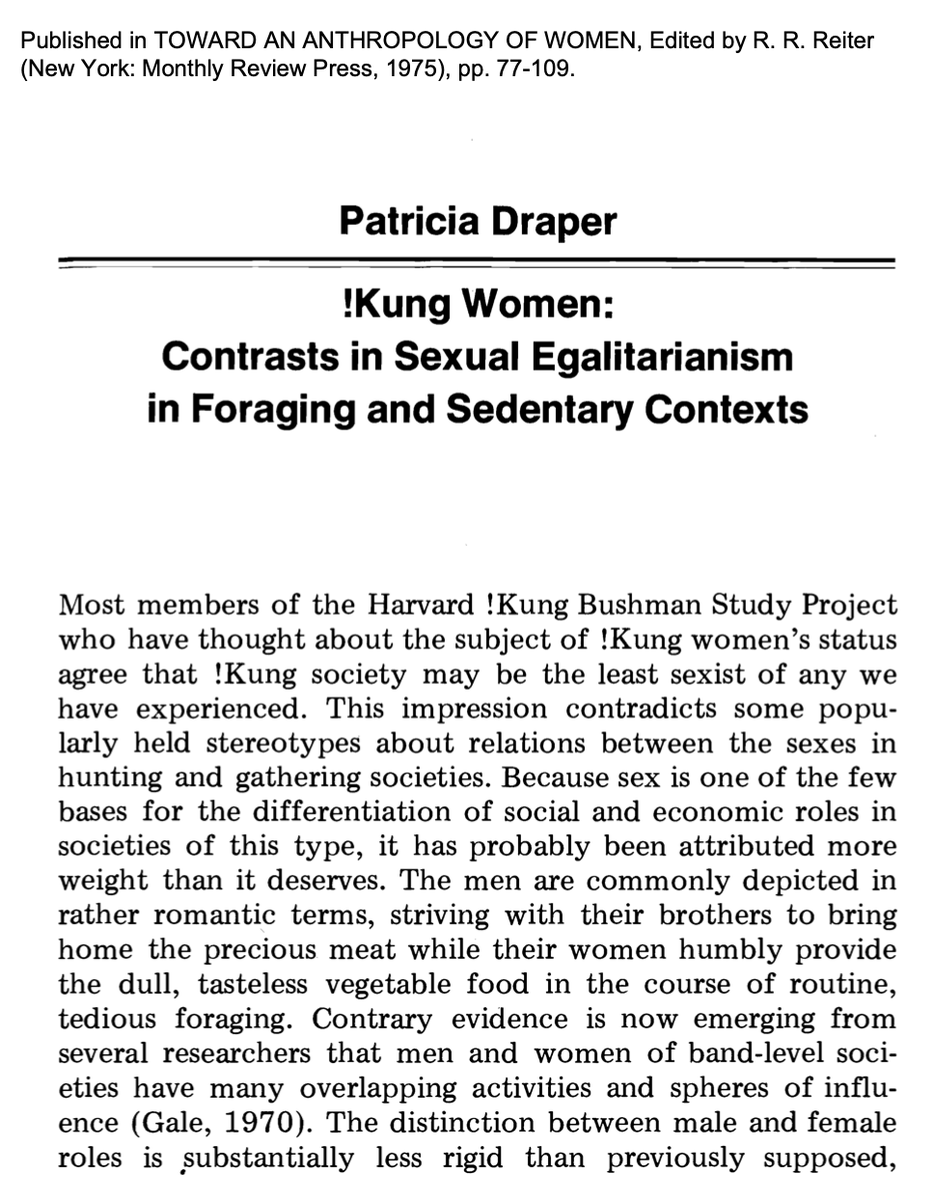
& 2⃣ Vandermassen's (2008) more recent argument that 'wishful thinking' has led some Darwinian feminists to overegg the extent to which ♀️foragers have/had true political agency & autonomy... link.springer.com/article/10.100…
There is a lot more to be said here (recommendations welcome!) - much of it coming down to how we might comparatively define & measure gender (in)equality... but it is striking to reflect on just how much both stereotypes & wishful thinking continue to muddy the picture.
Turning to recent work in economics, we then read 3 papers on the roles of agriculture & pastoralism in shaping gender ideology. Each of these papers owe a large debt the great interdisciplinary scholar Ester Boserup (1910-1999) 🌠👇pnas.org/content/107/51…
1st up - consistent with Boserup's ideas about the lasting impacts of farming-based labor divisions, Alesina et al. (2013) presents evidence that descendants of societies that traditionally practiced plough agriculture have less equal gender norms today. academic.oup.com/qje/article-ab…
2nd - Hassen et al. present data showing that the timing of historical transitions from foraging to agriculture predict contemporary gender roles - consistent with the notion that agriculture puts societies on a predictable path to patriarchal norms... link.springer.com/article/10.100…
& finally, @AnkeBecker_ tackles the idea that pastoralism promotes patriarchal norms because it is associated with extended periods of male absence, implying larger payoffs to imposing constraints on women’s sexuality. papers.ssrn.com/sol3/papers.cf…
The scope for greater synergy between evolutionary anthropological models of gender & recent work in economics here is really exciting!!⚡️ I would 💙 to see more interdisciplinary workshops, meetings, journal special issues addressing these themes!
Week 7: The Influence of Others. This week we tied together a set of readings beginning with a discussion on♀️ leadership: a key aspect of overturning patriarchy (reminder🚨: women still hold fewer than 5% of national political leadership positions across the 🌎).
First, we read a new review by @JennSmithSocBeh, @RuedenChris et al. addressing ♀️ leadership from the perspective of Tinbergen's 4 whys... Giving me an excuse to post this video explainer of Tinbergen for anyone unsure what that means! - I❤️this guy.
The paper is under review (🙏for sharing @RuedenChris !), but you can get a good sense of their perspective from this recent article - theconversation.com/nature-and-nur…
Obviously much of the science on gender diffs is debatable, but we particularly liked the discussion of ways to promote ♀️leadership (e.g. role models, increasing awareness of inadequacies of male-only leadership, addressing unfair biases in how ♀️&♂️ are evaluated by others)...
I also recommend here work by @RuedenChris @SarahAlamiG @MGurven exploring the roles of sex differences in physical formidability, education, & cooperation to the acquisition of political leadership in a small-scale society (the Tsimane of Bolivia).
sciencedirect.com/science/articl…
sciencedirect.com/science/articl…
Next we switched to the influence of others on ♀️sexuality - reading @KhandisBlake's recent paper suggesting that increased self-sexualization of women can be understood as a strategic response to rising income inequality rather than gender inequality... pnas.org/content/115/35…
@KhandisBlake is also giving a virtual talk today (4pm California) here at UCSB! - with the title: "Sex, Money and Gender Roles: Interdisciplinary Approaches to Resolving Gendered Conflict". If you can't make that - I can recommend this📽️to learn more!
Optional readings this week address the impact of kin on women's sexuality, reproduction & health. Including 1⃣ this useful reminder from Apostolou (2007) that women's mate choice decisions are often highly constrained by arranged marriages. sciencedirect.com/science/articl…
& 2⃣ a now classic study by Donna Leonetti et al. (2007) highlighting in-law conflicts over women's reproduction in India - "the reproductive agendas of husbands [& patrilines] may require more than women want to invest"... journals.uchicago.edu/doi/abs/10.108…
Interesting to think of the links here to just published work by @adamZreynolds @siobhanmattison et al. - demonstrating the importance of matrilineal kin in supporting women's wellbeing via a cool comparison of matrilineal & patrilineal groups in China... pnas.org/content/early/…
Week 8: What Women Want - This week we examine women (& men's) motivations in love & work, asking the totally uncontroversial question 😬: Does evolution produce relatively inflexible sex differences in preferences? & if so, does this render patriarchy somewhat inevitable?
To assess this logic & the related evidence we first 🔎 4 papers exploring flexibility vs. universality in mate choice preferences using different methods; including work by @pillse, @AndersonLabFAU, @dconroybeam, @ProfDavidBuss, & others. ⬇️ 







Excitingly, this included the opportunity to read a recent paper written by a ⭐️grad student from our own class - i.e. Katy Walter's 2020 thorough replication of @ProfDavidBuss's classic cross-cultural mate choice study. doi.org/10.1177/095679…
Walter et al. 2020 conclude that sex differences in desire for attractiveness, financial prospects & age are robust, & largely independent of measures of gender inequality across 45 nations >> consistent with hypothesized universal sex differences in preferences... 



On the other hand, I think a fair criticism - is that like Buss's original paper, the cross-cultural sample is not especially diverse by the standards of anthropology, nor clearly defined (a rather uncertain mix of university & community samples 👇)... 

Folks can (& will) make their own minds up, but one takeaway I am keen to establish is the importance of distinguishing between disagreeing with an evolutionary account of sex/gender differences in principle (🥱) vs. disagreeing with a any SPECIFIC evolutionary account...
In other words, we shouldn't let specific accounts dominate the discussion (eg evolution = there must be universal sex differences!), & so avoid imagining alternative evolutionary scenarios. This essay, drawing on @HollyDunsworth lays out this issue well:
thecut.com/2016/12/not-al…
thecut.com/2016/12/not-al…
Switching from love to work, we then read a short background reading by @parnajarlpa & Brian Codding "there is no 'human sexual division of labor', but rather, there are “divisions of labor,” of which some may be based on gender"... onlinelibrary.wiley.com/doi/abs/10.100…
Followed up by a new paper by @kstark8 💫, addressing the pursuit of risk & reward in women's work. @kstark8 is also our guest this week, zooming in for a Q & A with our class tmrw morning -- can't wait for the discussion!! cambridge.org/core/journals/…
Week 9 - 'Harmful Cultural Practices' (posting early so I can enjoy thanksgiving break!) - this week we explore the causes & consequences of 'child marriage', polygynous marriage & FGC - drawing especially on my own research (had to do it sometime!) with Mhairi Gibson & others.
First, in the week THAT awful paper on female mentors came out, let me take a moment to recognize Mhairi Gibson's fundamental role as my mentor. She is one of those wonderful researchers NOT ON TWITTER - & ya'll need to invite her to give more keynotes! bristol.ac.uk/school-of-arts… 

The book above is an edited volume on 'Applied Evolutionary Anthropology' that we published together back in 2014 (see also 👇). The topic (applying evol anth to debates in global health) is our shared priority, & Mhairi is an absolute pioneer here!
onlinelibrary.wiley.com/doi/abs/10.100…
onlinelibrary.wiley.com/doi/abs/10.100…
Probably the research she is best known for, is her study of the unintended impacts of labor-saving technology (water tap stands) on birth rates & child health in Ethiopia. Something she recently presented to UK Parliament! bristol.ac.uk/news/2018/nove…
Let me also be clear: ⚡️ 'harmful cultural practices' ⚡️ is problematic terminology (see 👇) , hence the scare quotes, yet it remains in common usage. We use it here critically, & to so requires naming & addressing the framework... tandfonline.com/doi/abs/10.108…
Readings 📚: We begin with an overview of alternative evolutionary hypotheses for different so-called 'HCPs' - using a new book chapter as part of @RebeccaSear & @AnthroPsycho exciting forthcoming volume on Evolutionary Demography.
uploads.strikinglycdn.com/files/907a23e2…
uploads.strikinglycdn.com/files/907a23e2…

Going into more detail, we then 🔎 2 papers led by @DrSchaffnit on the drivers/consequences of 'child marriage' (<18 yrs). Here, we test & reject the hypothesis that it is explained via parent-offspring conflict - a dominant narrative in global health. nature.com/articles/s4156…
Following this work, we later (with help from Joyce Wamoyi + Mark Urassa) investigated local perceptions of early marriage - arguing that it is better interpreted as a 'best of a bad job strategy' within constraints, with important policy implications. tandfonline.com/doi/abs/10.108…
Next up, polygynous marriage - beginning with this 2015 paper demonstrating that despite negative (& spurious) group-level associations, polygynous marriage is often associated with greater wealth & better child wellbeing within communities in Tanzania. pnas.org/content/112/45…
In related work, with @CarolineUggla + Eshetu Gurmu, Mhairi Gibson, has also demonstrated inequalities between co-wives. Together, we conclude that poly can have both positive ➕& ➖ consequences, often dictated by a woman's placement within a marriage... sciencedirect.com/science/articl…
For a wider discussion - see also our 2018 review. Conclusion: Polygyny IS an important cause for concern, but context & variation matter! In some contexts, banning it may limit options for women, in others it could be effective in disrupting patriarchy demographic-research.org/volumes/vol39/…
Next up, a few papers on female genital cutting. Here, @Janetahoward_ & Mhairi, suggest that fitness impacts of FGC are frequency-dependent i.e. when women don't do it, but its the local norm - they are disadvantaged. This can make FGC stubborn to change. nature.com/articles/s4155…
In other work, @Janetahoward_ has presented evidence that male concerns over paternity certainty contribute to the persistence of FGC, as a strategy to restrict female sexuality - including in this paper using secondary data from across West Africa.
sciencedirect.com/science/articl…
sciencedirect.com/science/articl…
And in this paper, Katherine Wander & Bettina Shell Duncan look at the perceived health costs vs social benefits (e.g. on the marriage market) of FGC in Senegambia - examining how both affect readiness to social change.
sciencedirect.com/science/articl…
sciencedirect.com/science/articl…
An interesting complement to these papers is work by Efferson et al - suggesting that FGC is in fact NOT best understood via a social norms perspective - "cutting rates show no trace of the discontinuity they should exhibit if families were coordinating".. science.sciencemag.org/content/349/62…
It's so exciting to see more & more folks with a background in evolutionary anthropology apply themselves to these topics & related questions in global health / development. While it's early days, we hope we can scale to something similar in scope to Evolutionary Medicine! 💫🤞
Week 10 - 'Changing Men': in our final week, we explore individual variation among men in support for #GenderEquality. We also ask what kind of interventions might be successful in shifting men's attitudes &/or behavior.
As with previous weeks, we purposely read work from across disciplines, this time also bringing in research from some of my ⭐️ @ucsantabarbara colleagues, along with considering recent high-profile initiatives like the United Nations #HeForShe campaign... 

As a bit of theoretical orientation we read @Brooks_Rob & @KhandisBlake preprint on 'gendered fitness interests' which may explain why men & women's attitudes to gender equality often converge despite conflict, along with potential effects of offspring sex minerva-access.unimelb.edu.au/handle/11343/2…
Next up - This paper by @RutiLevtov et al. (2014) drawing on attitudinal data from 8 nations collected by @Promundo_US - LOTS of cross-national variation, but education emerges as the most stable predictor of men's support for gender equality. journals.sagepub.com/doi/abs/10.117…
Followed up by this paper by UCSB's Maria Charles on gender attitudes across Africa - this time emphasizing the role of exposure to "extra-local culture, including through internet & mobile phone usage, news access, & urban residency" academic.oup.com/sf/article-abs…
At this point, I had hoped to share data our lab (@DrSchaffnit, @JosephKilgallen) has collected from Tanzania on this topic... We compared men within a single community & find lots of variation in views on gender... Fieldwork seems is a distant memory🙄 -
https://twitter.com/davidwlawson/status/1148158602663907328?s=21
Alas, this isn't quite ready to share! #celebratefailure. But spoiler 🚨- using some nifty methods, we demonstrate that men substantially exaggerate support for gender equality in direct surveys - calling into question many findings from past research 🤓.
https://twitter.com/davidwlawson/status/1333855425465176064?s=21
Next up - two papers on the impacts of transitions to 1⃣ parenthood (men become MORE supportive of 'traditional' gender norms) by @JaneenBaxter7 , & 2⃣ raising daughters (seemingly makes men LESS supportive of traditional gender norms) by @mborrellporta. 



Special shout out here also to @ucsantabarbara ⭐️ economist @ShellyJLundberg & her highly recommended (2005) review of the wider impacts of sons vs. daughters on parental behavior. academic.oup.com/oxrep/article-…
Sticking with @ucsantabarbara, we then turned to @sthebaud1's research on how perceptions of normative masculinity shape gender ideology. 👇 Result: Men are more influenced by what they think other men believe, than what they think men ought to believe... journals.sagepub.com/doi/abs/10.117…
Which ties nicely to this recent 🤯 study by Bursztyn - which reports that men substantially underestimate other men's support for women's empowerment - & critically, correcting this misperception can lead to positive change in their actual behavior... aeaweb.org/articles?id=10…
So much to digest here & so exciting to think about intersections with evol anth/psych! To wrap up, we read the final chapter of @GillianRBrown1's Sense & Nonsense - giving me an excuse to link to this very entertaining thread on the book by @wgervais 👇😀
https://twitter.com/wgervais/status/1150526837950300160?s=21
And thats it! For those following along - I hope you enjoyed it! ☺️ It took a lot more time than I expected, & jeez I would probably do it ALL differently if I started from the beginning BUT it's been a fun side-project in these anti-social times! OK... I'm off for a nap!!
• • •
Missing some Tweet in this thread? You can try to
force a refresh



